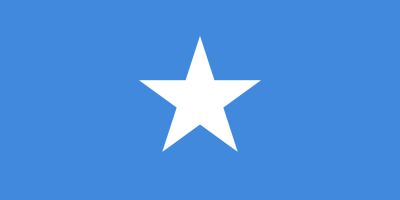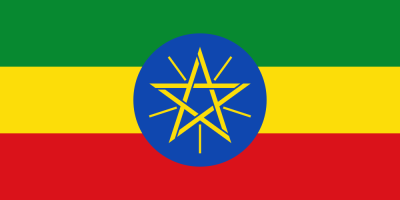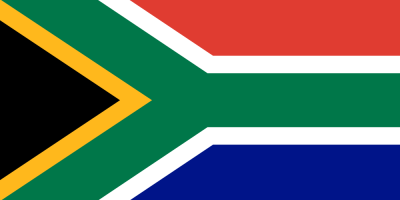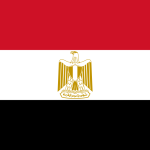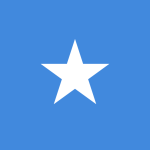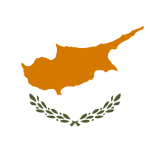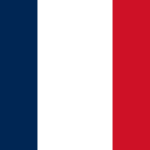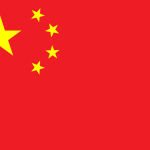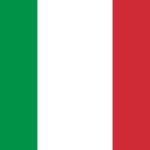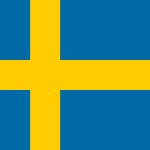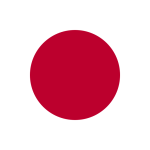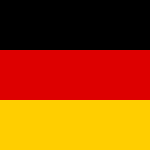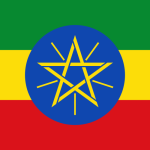Botswana flag color codes features vibrant stripes of teal, white, and black which represent integral elements of the country’s cultural identity and natural splendors. Deciphering the precise Botswana flag color codes in HTML HEX, RGB, PANTONE, HSL, CMYK, HWB, and NCOL models allows accurate reproduction of the colors on this symbolic national emblem. Understanding the meanings behind each shade helps designers properly apply them, while specifying the Botswana flag color codes enables accurate representation in a variety of digital and print formats. Whether depicting the Botswana flag in graphic design projects or adding visual flair to presentations on the country, having exact specifications for the flag’s teal, white, and black colors is valuable. This article will outline symbolism of the key flag components and provide official Botswana flag color codes in common formatting systems for those seeking to faithfully recreate this standard.
Table of Contents
What are the colors of Botswana flag?
The colors of the Botswana flag are:
- Teal (Pantone 313) – The teal horizontal band represents the clear waters and life-sustaining rain that fills the Okavango Delta, an essential ecosystem and source of national pride for Botswana.
- White – The central white horizontal band symbolizes peace, harmony, and the positive future the Botswana people are working to build.
- Black – The black horizontal band at the bottom has two meanings – it represents the fertility of the soil and also evokes the resilience and determination of the Batswana people.
So in summary, the three colors are:
- Teal
- White
- Black
These colors appear in three equal horizontal bands stacked on top of each other from top to bottom in the order: teal, white, black. Together they form the vivid flag that has come to symbolize Botswana’s national identity since gaining independence.
Botswana flag color codes & Color Names:
Blue
| Color Model | Value |
|---|---|
| HTML | #7F9DB9 |
| HEX | 7F9DB9 |
| RGB | 127, 157, 185 |
| PANTONE | 542 C |
| HSL | 210°, 34%, 61% |
| CMYK | 31%, 15%, 0%, 27% |
| HWB | 210°, 31%, 27% |
| NCOL | 220, 33, 42 |
BLACK
| Color Model | Value |
|---|---|
| HTML | #000000 |
| HEX | 000000 |
| RGB | 0, 0, 0 |
| PANTONE | Black |
| HSL | 0°, 0%, 0% |
| CMYK | 0%, 0%, 0%, 100% |
| HWB | 0°, 0%, 100% |
| NCOL | 0, 0, 0 |
WHITE
| Color Model | Value |
|---|---|
| HTML | #FFFFFF |
| HEX | FFFFFF |
| RGB | 255, 255, 255 |
| PANTONE | White |
| HSL | 0°, 0%, 100% |
| CMYK | 0%, 0%, 0%, 0% |
| HWB | 0°, 100%, 0% |
| NCOL | 0, 0, 100 |
What is the meaning of colors in the Botswana flag?
The colors of the Botswana flag carry cultural, political, and environmental symbolism:
Teal: The bright teal band represents the life-giving waters of the Okavango Delta, a lush inland river delta that supports abundant wildlife in the Kalahari Desert region. This teal evokes the national pride Botswana has in this unique ecosystem.
White: The central white band symbolizes several ideas – it represents peace, unity, and harmony among the people and the nation’s ongoing efforts to promote positive development.
Black: The black band has two symbolic meanings. First, it represents the fertility of the soil and Botswana’s wealth of natural resources. Second, it stands for the resilience and determination of the Batswana people.
In summary, the color symbolism is:
- Teal = Okavango Delta, water, life
- White = peace, harmony, unity
- Black = fertile soil, resilience of people
The vibrant teal, calm white, and bold black bands come together to form the Botswana flag, which uses color to communicate national pride, values, and the personality of this southern African country. The flag’s symbolic colors help motivate Botswana’s continued growth and development.
Explore More Flag Colors:
- Cambodia Flag Color Codes
- Libya Flag Color Codes
- Mauritius Flag Color Codes
- North Korea Flag Color Codes
FAQs: Frequently Asked Questions:
Is Botswana a rich or poor country?
Botswana is often considered one of the more economically stable and prosperous countries in Africa. It has experienced significant economic growth since gaining independence in 1966.
Key factors contributing to Botswana’s economic success include:
Diamond Mining: Botswana is one of the world’s leading producers of diamonds. Revenue from diamond mining has played a crucial role in the country’s economic development.
Stable Governance: Botswana has a history of stable governance and has avoided the political instability and conflicts that have affected some other African nations.
Sound Economic Policies: The country has implemented sound economic policies, including fiscal responsibility and effective management of natural resources.
Investment in Education and Health: Botswana has invested in education and healthcare, contributing to improvements in human development indicators.
Why is Botswana famous?
Botswana is famous for several reasons, including its commitment to wildlife conservation, economic stability, natural beauty, and cultural heritage. Here are some key aspects for which Botswana is well-known:
Wildlife and Safari Tourism:
Botswana is renowned for its rich biodiversity and commitment to wildlife conservation. The country is home to iconic African animals such as elephants, lions, giraffes, and rhinos. The Okavango Delta, a UNESCO World Heritage Site, is a particularly famous destination for safari enthusiasts.
Political Stability:
Botswana is often cited as a model of political stability in Africa. Since gaining independence in 1966, the country has experienced peaceful transitions of power and effective governance.
Diamonds:
Botswana is a major producer of diamonds, and the diamond industry has played a significant role in the country’s economic development. The responsible management of diamond revenues has contributed to the nation’s prosperity.
Okavango Delta:
The Okavango Delta is one of the world’s largest inland deltas and a UNESCO World Heritage Site. It is known for its unique ecosystem, attracting wildlife and offering picturesque landscapes.
Cultural Heritage:
Botswana has a rich cultural heritage with diverse ethnic groups, each contributing to the country’s traditions, music, dance, and art. The traditional music and dance of the San people, also known as the Basarwa or Bushmen, are particularly notable.
Is Botswana a good country to live in?
The suitability of Botswana as a place to live depends on individual preferences, priorities, and circumstances. Botswana is often considered one of the more stable and economically prosperous countries in Africa, and it offers several positive aspects for residents. Here are some factors to consider:
Positive Aspects:
Political Stability: Botswana has a history of political stability, with a democratic government and peaceful transitions of power. This stability contributes to a secure living environment.
Economic Prosperity: The country has experienced steady economic growth, and its management of natural resources, particularly diamonds, has contributed to economic prosperity.
Wildlife and Nature: Botswana’s commitment to wildlife conservation makes it an attractive destination for nature enthusiasts. The country is known for its diverse ecosystems, including the Okavango Delta and Chobe National Park.
Education and Healthcare: Botswana has made investments in education and healthcare, contributing to improvements in human development indicators. Access to quality education and healthcare services is available in urban centers.
Cultural Richness: Botswana has a rich cultural heritage, with diverse ethnic groups, traditional music and dance, and a strong sense of community. Residents can experience and appreciate the country’s cultural diversity.
English as an Official Language: English is one of the official languages of Botswana, making it easier for expatriates and residents to communicate.
Is Botswana a European country?
No, Botswana is not a European country. Botswana is a landlocked country located in Southern Africa. It is bordered by Namibia to the west and north, Zambia to the north, Zimbabwe to the northeast, and South Africa to the south and southeast. To the east, Botswana has a border with a small portion of Namibia known as the Caprivi Strip.
Botswana gained its independence from British colonial rule on September 30, 1966. Prior to independence, it was a British Protectorate known as Bechuanaland. Since gaining independence, Botswana has been a sovereign nation with its own government, political system, and cultural identity.
Is Botswana a safe country?
Botswana is generally considered a safe country for travelers. It has a reputation for political stability, a low crime rate, and a welcoming atmosphere. However, like any destination, it’s important to be aware of certain considerations and take common-sense precautions. Here are some key points regarding safety in Botswana:
Safety Tips:
Political Stability: Botswana has a history of political stability and peaceful transitions of power. Political unrest is not a common concern for travelers.
Low Crime Rate: Botswana has a relatively low crime rate compared to some other countries in the region. Violent crime is uncommon, but petty crimes such as pickpocketing may occur, especially in crowded areas.
Health Precautions: Travelers should take health precautions, including vaccination recommendations and taking measures to prevent waterborne diseases. Malaria is present in some areas, so anti-malarial medications are often recommended.
Wildlife Safety: Botswana is known for its wildlife, and encounters with animals can occur, especially in national parks. It’s important to follow safety guidelines provided by guides and park authorities.
Traffic Safety: Exercise caution when driving, as road conditions can vary, and wildlife may pose hazards. Be aware of local traffic rules and road conditions.
Remote Areas: In some remote areas, access to services may be limited. Travelers should plan accordingly, especially if venturing into less-populated regions.
Why is Botswana so expensive?
The perception of Botswana as an expensive destination can be influenced by various factors, and it’s essential to consider different aspects of the country’s economy, infrastructure, and tourism industry. Here are some factors that may contribute to the perception of Botswana as relatively expensive:
Economic Stability: Botswana is one of the more economically stable countries in Africa. A stable economy often leads to a higher standard of living, which can contribute to higher overall costs.
High Cost of Living in Urban Areas: Urban centers in Botswana, such as the capital city Gaborone, may have a higher cost of living compared to more rural areas. This can impact the prices of goods and services.
Tourism Focus: Botswana is a popular destination for wildlife safaris, and the country has implemented a high-value, low-impact tourism model. This approach prioritizes conservation and limits the number of visitors in certain areas, which can lead to higher prices for exclusive and eco-friendly tourism experiences.
Conservation Fees: The commitment to wildlife conservation in Botswana often comes with associated fees to support these efforts. National parks and wildlife reserves may charge entrance fees or conservation fees, contributing to the overall cost of a safari experience.
Quality of Services: Botswana aims to provide high-quality services, especially in the tourism sector. High standards of accommodation, guides, and overall experiences can contribute to higher prices.
Is Botswana a developed country?
Botswana is classified as a developing country, specifically as an upper-middle-income country by the World Bank. While it has achieved significant economic growth and stability since gaining independence in 1966, it does not meet all the criteria typically associated with fully developed nations.
Key factors contributing to Botswana’s economic success include:
Economic Growth: Botswana has experienced steady economic growth, driven in part by the diamond mining industry. The country has successfully managed its diamond resources, contributing to sustained economic development.
Political Stability: Botswana has a history of political stability and good governance. Democratic elections and peaceful transitions of power have been key features of the political landscape.
Human Development: Botswana has made progress in human development indicators, including education and healthcare. Access to education and healthcare services has improved over the years.
Conservation Efforts: The country is known for its commitment to wildlife conservation, and the tourism sector, particularly safari tourism, has played a role in the economy.
Is Botswana peaceful?
Yes, Botswana is generally considered a peaceful country. It has a history of political stability and has avoided the civil conflicts and unrest that have affected some other nations in the region. Since gaining independence from British colonial rule in 1966, Botswana has experienced democratic governance with regular and peaceful transitions of power.
Key factors contributing to Botswana’s reputation for peace include:
Political Stability: Botswana has a stable political environment with a multi-party democracy. The country has conducted regular and peaceful elections, and the political landscape has been characterized by a commitment to democratic principles.
Avoidance of Armed Conflicts: Botswana has avoided armed conflicts and civil wars that have affected some other African nations. It has maintained good diplomatic relations with neighboring countries.
Effective Governance: The government of Botswana has been recognized for its effective governance and commitment to good governance principles. This has contributed to a stable and peaceful environment.
Rule of Law: Botswana has a well-established legal system and a commitment to the rule of law. The judiciary operates independently, contributing to a stable legal and political environment.
What to eat in Botswana?
Botswana has a diverse culinary scene that reflects the country’s cultural influences and the availability of local ingredients. Here are some traditional and popular foods to try in Botswana:
Seswaa: This is a traditional Botswana dish made from slow-cooked meat, typically beef or goat. The meat is boiled until tender, then shredded and pounded, and finally, it’s cooked again until it reaches a flavorful and soft consistency. Seswaa is often served with a starchy side, such as maize porridge or sorghum.
Mopane Worms: Considered a delicacy, mopane worms are caterpillars of the emperor moth. They are often dried or smoked before being cooked. Mopane worms are rich in protein and are enjoyed as a snack or included in stews.
Pap (Maize Porridge): A staple in Botswana, pap is a type of maize porridge that is similar to polenta. It is often served as an accompaniment to meat dishes and stews.
Bogobe: Another type of porridge made from sorghum or millet, bogobe is a popular dish in Botswana. It is typically served with meat, vegetables, or a sauce.
Morogo (Wild Spinach): Morogo refers to wild spinach or other leafy greens that are commonly used in Botswana cuisine. The greens are often cooked with tomatoes, onions, and spices.
Braai: Grilling, or “braai” as it is known in Botswana, is a popular cooking method. Various meats, including beef, chicken, and lamb, are seasoned and grilled over an open flame.

